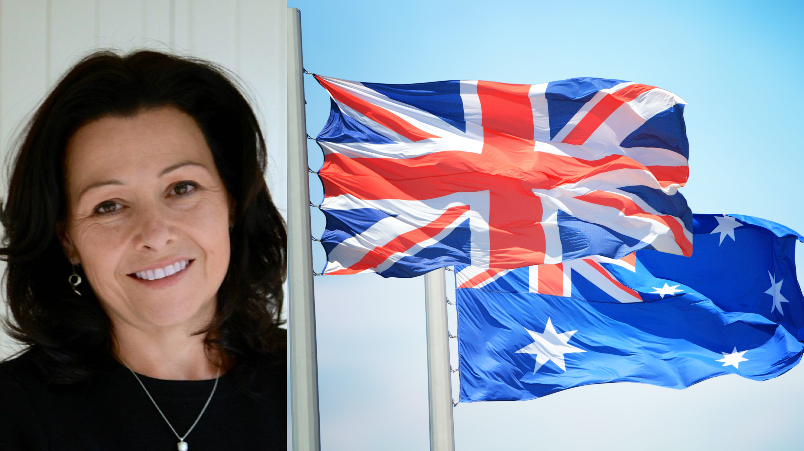The empire won’t strike back: Here’s why your next colleague is unlikely to be a Brit as Australia battles Canada, US for UK industry talent

Boomerang Brits? MFA CEO Sophie Madden says Australia's reliance on UK talent is facing huge competition from Canada and the US.
Once the go-to for hiring all levels of experience in marketing, advertising and media – and a great hope for many Australian leaders to fill their surging post-Covid job vacancies – the UK talent market should no longer be viewed by industry as the salvo to solve the current talent crisis, warns Media Federation CEO Sophie Madden. Canada and the US are putting enormous pressure on Australia’s attractiveness as a career migration choice.
What you need to know:
- Tech companies are making lucrative raids on media and agency talent after realising they’re cheaper than experienced tech staff.
- Hopes of skilled migration from the UK is challenged as other markets eye the Brit talent pool which is already facing its own pressures.
- Industry bodies like the MFA and Advertising Council are moving at pace to develop alternative talent attraction and development programs in Australia.
Let’s not forget this is a global talent crisis. There's nowhere for this silver bullet to go. There’s all these other countries we're competing against, Canada and the US particularly.
Tech raids
As tech companies from Google to TikTok and Salesforce make new raids on media and agency staff, Industry leaders have increasingly pinned their hopes on a return to pre-Covid levels of skilled UK migration to relieve pressure on the local talent crisis. But those prospects are being crimped by surging competition from Canada and the US that means immigration can no longer be seen as the historical fix it once was, MFA CEO Sophie Madden told Mi3.
Stories abound in the market of huge salary increases being offered by tech companies who have figured out experienced tech talent is more expensive than the pay on offer in adjacent media and agency sectors – and are now prolifically poaching. TikTok is said to have hired hundreds of people with huge salary increases – sometimes double – but established giants like Google, Salesforce and Adobe are also active.
“The numbers are crazy,” said one publishing boss. “They’ve worked out media talent is cheaper.” In some cases, media and agency bosses report tech companies are hiring without defined jobs or firm job descriptions for those they are poaching in what looks like a talent stockpiling strategy. Ironically, companies like Google are facing low staff churn levels because of their generous staff packages and programs, resulting in a lack of new blood to keep the internal culture competitive.
The tech sector interest, aside from intense poaching between existing players in media and agencies, makes skilled migration the pressure valve agency bosses are desperate to see divert people flow back into the tanks and ease soaring vacancy rates. But that too is troubled waters.
“Let’s not forget, this is a global talent crisis,” said Madden. “There's nowhere for this magic bullet to go. The challenge with bringing in overseas talent is actually no different to the challenge of getting talent from other sectors. There's a shortage everywhere. At the moment, because of the border closures, there is some nervousness about people looking at us as being the most attractive place to move to. There’s all these other countries we're competing against, Canada and the US particularly.”
Changes to skilled migration rules and more difficulty in attaining permanent residency is adding to the difficulties in finding international talent to fill vacancies.
The MFA and Advertising Council joined forces about three years ago to address the Federal Government’s overhaul of the skilled migration visa program, which the marketing, media and advertising industries used heavily to tap offshore staff. The result is a visa immigration scheme for MFA and Advertising Council members that allows them fast-tracked exemptions on sponsored staff and permanent residency status.
Madden and Ad Council CEO Tony Hale met with Home Affairs last week where it was made clear there was a significant backlog of applicants being processed under the new Temporary Skill Shortage visa, which the two industry bodies are able to bypass because of the industry visa scheme they lobbied the Feds to operate.
“It was relied on quite heavily through Covid because people that were on visas that would have had to go home because their visa expired, could move onto our program as a way of staying in the country,” Madden said. “More and more companies and people are wanting to access that programme.”
But Madden said immigration accounted for about 10 per cent of the industry’s local workforce and that longer-range strategies and programs – mostly local – were required to ensure a broader industry talent pool. The media agency sector last year was up 20 per cent in total head count. “We need lots of new bodies,” Madden said. “That’s a positive in that the industry is growing but it’s a major challenge because you’ve got to find those people somewhere.'
That means the industry is going to have to cast its net wider – and Madden says the MFA is working up key initiatives in a bid for new blood, fast.

